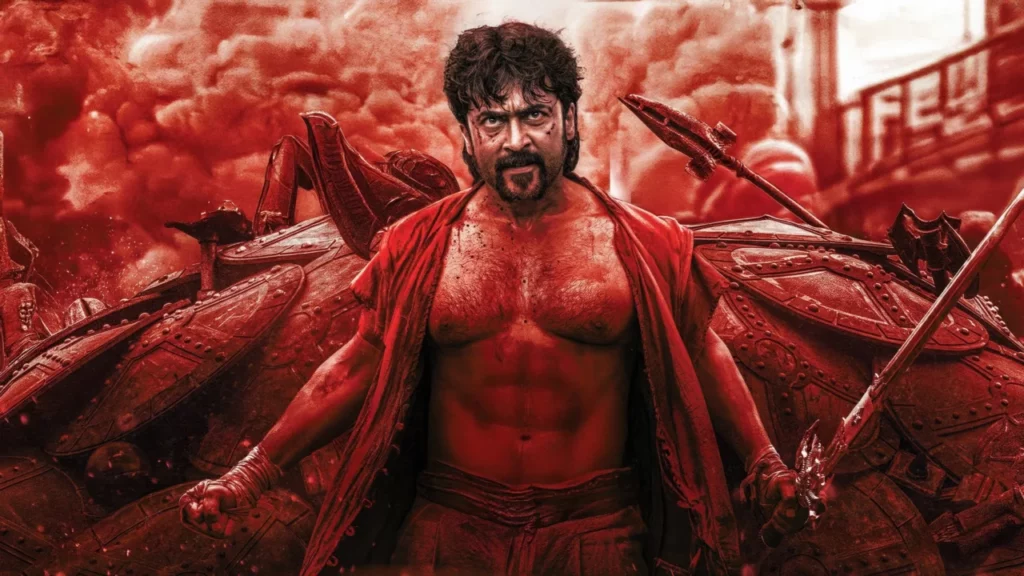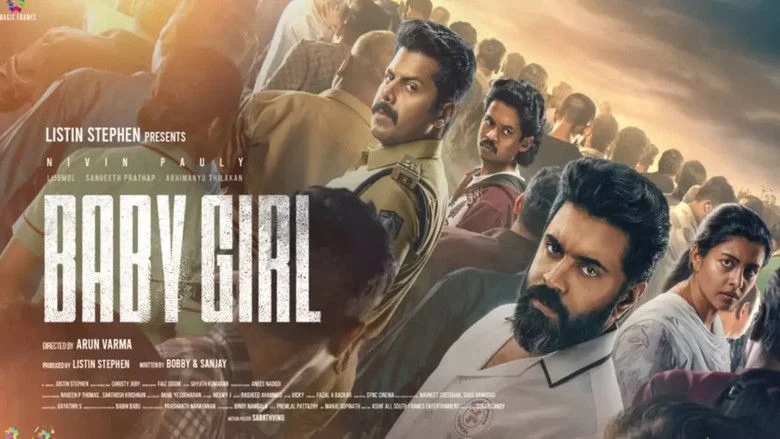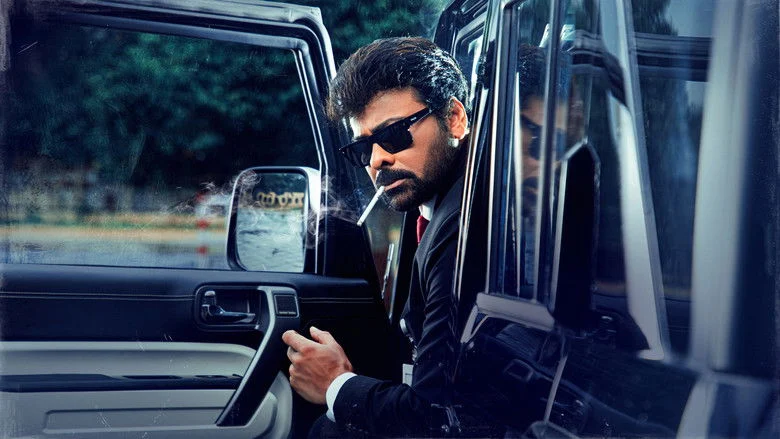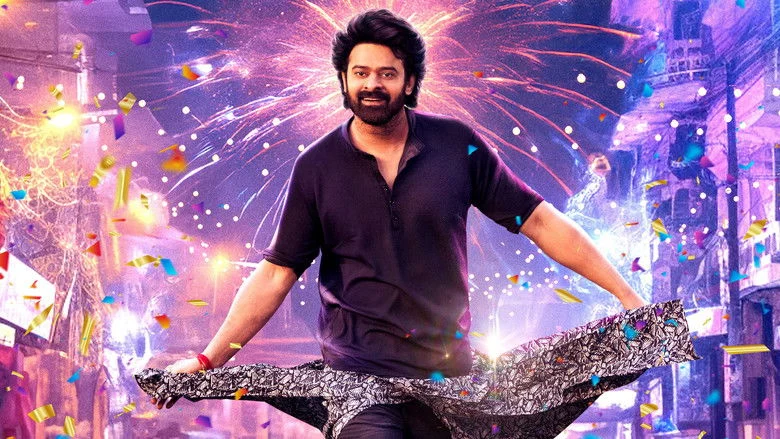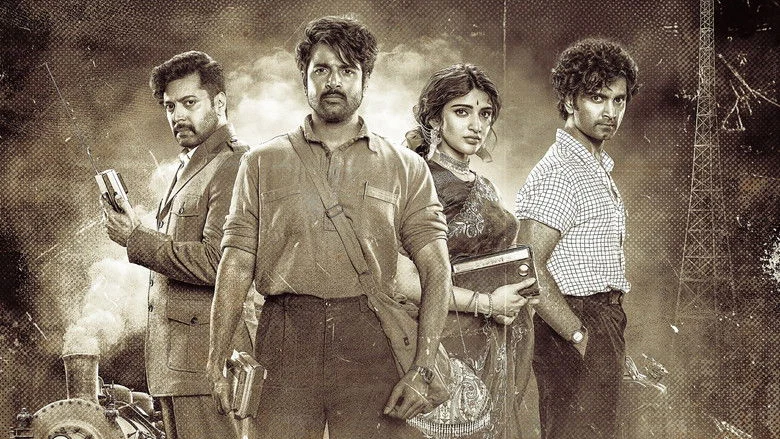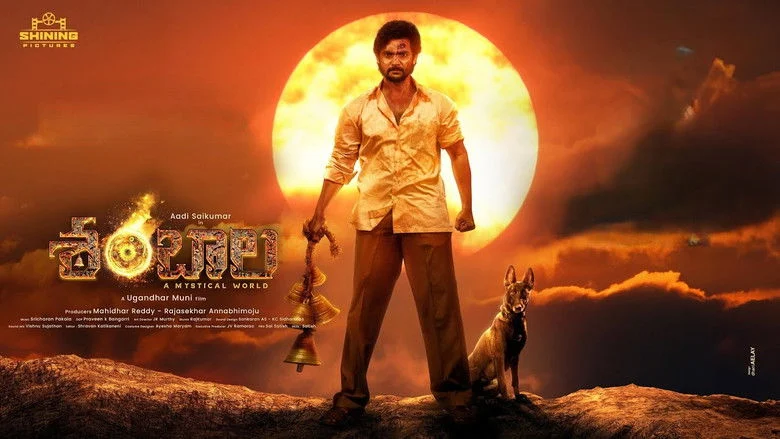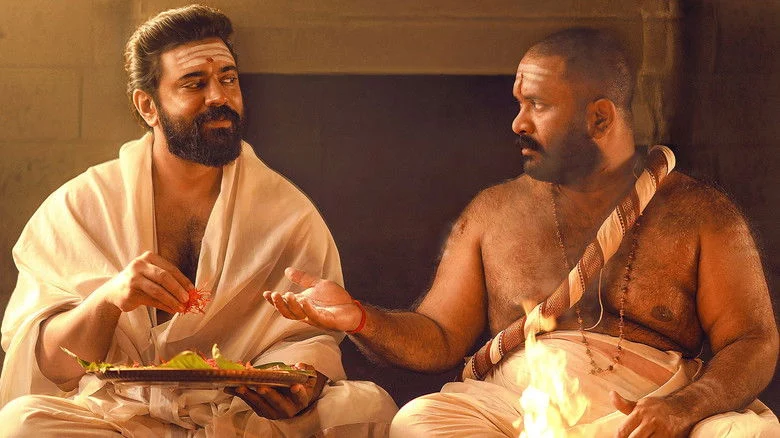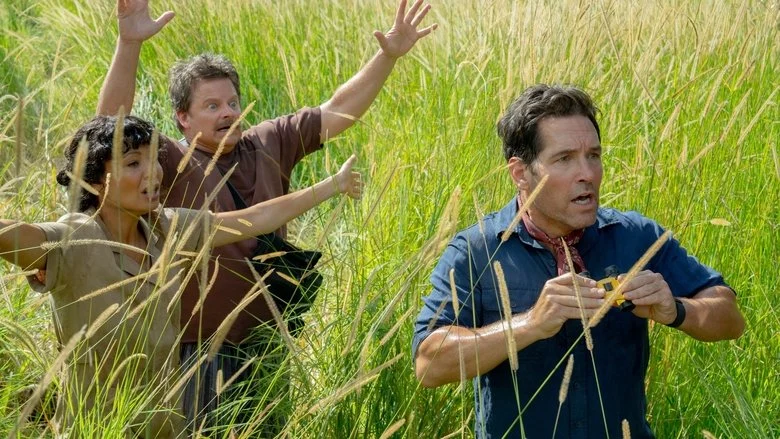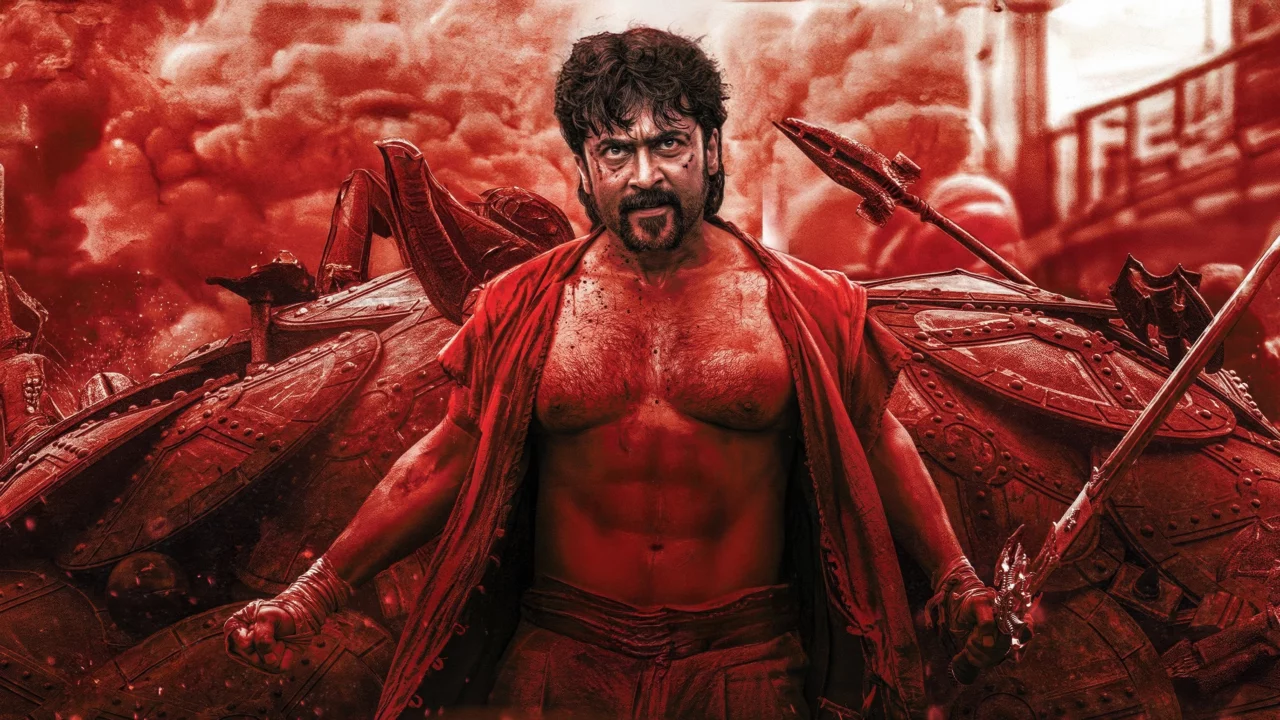
Retro (2025) Movie ft. Joju and Pooja
Retro marks the collaboration between director Karthik Subbaraj and superstar Suriya in this ambitious Tamil romantic action drama. The film features Pooja Hegde as the female lead alongside a stellar supporting cast including Joju George, Jayaram, Nassar, and Prakash Raj.
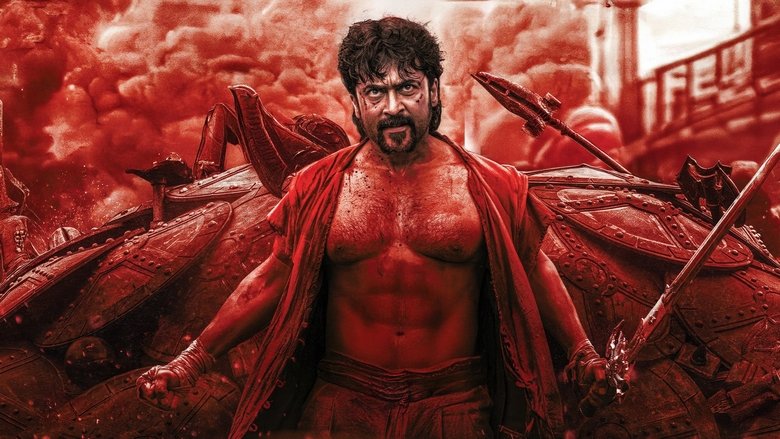
Plot and Story
The story begins in 1960s Thoothukudi where young Paari is adopted by a gangster’s wife. After her death, he meets Rukmini during funeral rites in Varanasi, sparking a love story that spans years. The narrative draws parallels to Krishna’s mythology, with Paari born on Krishna’s birthday and facing similar prophetic circumstances.
The film explores Paari’s journey from seeking peaceful life to embracing his destiny as a protector. The plot weaves romance, action, and social commentary but struggles with tonal consistency in the second half.
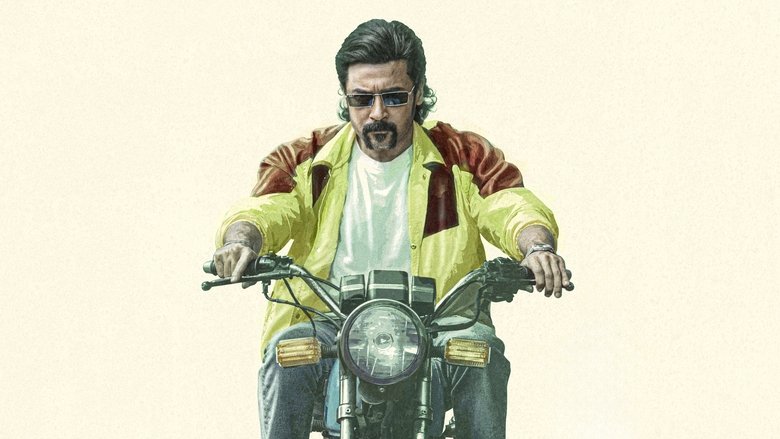
Cast Performance
Suriya delivers one of his finest performances in recent years, showcasing remarkable range from romantic scenes to intense action sequences. His screen presence carries the film through challenging narrative moments. The famous mirror scene particularly highlights his emotional depth.
Pooja Hegde provides strong support as Rukmini, though I felt her character deserved more development. Her chemistry with Suriya works well, especially in romantic segments. This marks her first Tamil film where she dubbed her own voice.
Joju George brings necessary gravitas as the reluctant father figure Thilagan. Jayaram, Nassar, and Prakash Raj deliver solid supporting performances, creating a believable world for the story.
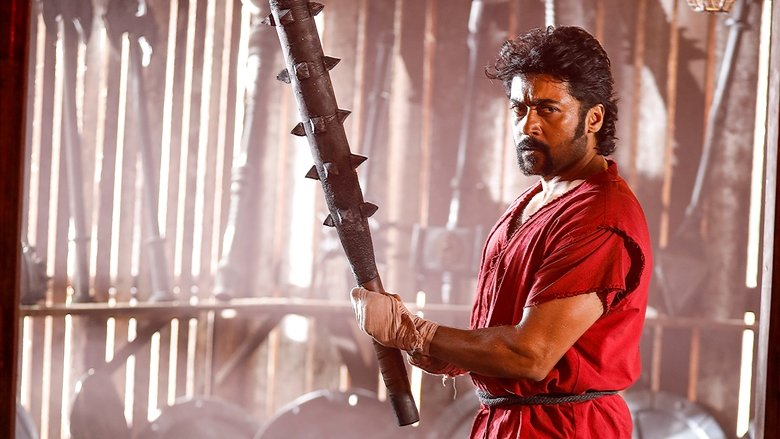
Direction and Technical Brilliance
Karthik Subbaraj continues his experimental approach, attempting to merge multiple genres. His vision is ambitious, blending mythological storytelling with contemporary issues while maintaining commercial appeal.
Shreyaas Krishna’s cinematography creates visually stunning frames capturing both period authenticity and emotional landscape. The 15-minute single-shot sequence combining action, drama, and song Kanimaa stands as a cinematic masterpiece.
The production design effectively recreates the 1960s setting. Filming across Andaman Islands, Ooty, Kerala, and Chennai adds visual authenticity to the narrative.
Music and Sound
Santhosh Narayanan’s soundtrack emerges as one of the film’s strongest elements. Tracks like Edharkaga Marubadi and The One enhance both romantic and action sequences effectively. The background score adds emotional depth to dramatic moments.
The integration of traditional Tamil musical elements with contemporary sounds creates authentic period feel. Sound design creates an immersive audio experience supporting the film’s technical ambitions.
Critical Reception
The film received generally positive reviews from critics. Tamil Guardian awarded 4/5 stars, noting Subbaraj’s fresh approach to familiar themes. Pinkvilla gave 3.5/5 stars, praising the unique blend of genres.
Times of India rated 3/5, acknowledging technical brilliance while noting second-half issues. However, some critics called it tonally inconsistent, struggling between brutal action and lighthearted comedy.
Box Office Success
Retro emerged as a commercial hit, grossing approximately ₹97 crore worldwide against a ₹60-65 crore budget. The film opened with ₹19.25 crore on day one, marking Suriya’s highest opening in Tamil Nadu.
Netflix acquired streaming rights for ₹80 crore, with the film premiering on the platform from May 30, 2025. The success led to a ₹10 crore donation to educational charity.
What I Loved
The technical brilliance stands out as the film’s biggest strength. That 15-minute single-shot marriage sequence left me speechless – it’s pure filmmaking magic. Suriya’s committed performance elevates every scene, particularly that emotional mirror sequence that showcases his range.
Santhosh Narayanan’s music stayed with me long after leaving the theater. The visual aesthetics create an immersive 1960s atmosphere that feels authentic yet accessible.
I appreciated Karthik Subbaraj’s bold vision for experimenting with genre conventions, even when not entirely successful.
Areas for Improvement
The second half suffers from pacing issues that prevent it from matching the first half’s impact. The transition from personal story to larger themes feels disconnected from the emotional core established earlier.
Character development, particularly for Pooja Hegde’s Rukmini, needed more depth. The villains feel underdeveloped compared to the protagonists’ complexity.
The film’s tonal shifts between comedy, romance, action, and social commentary sometimes create confusion about its core identity.
Audience Response
IMDb rating of 6.9/10 reflects decent audience reception. Viewers praised Suriya’s performance and technical aspects while noting screenplay inconsistencies. Suriya fans celebrated his return to form after previous disappointments.
The single-shot sequences and emotional range became particularly popular on social media. International audiences in Tamil-speaking regions responded positively to themes of cultural identity.
Final Verdict
Retro succeeds as ambitious mainstream cinema that pushes boundaries while delivering commercial entertainment. While narrative execution doesn’t always match its ambitions, the film offers enough technical brilliance and performance quality to warrant viewing.
Suriya fans will find much to appreciate, while cinema enthusiasts will be impressed by production values and innovative sequences. Those expecting conventional storytelling might find the experimental approach challenging.
I’d recommend Retro for its bold vision and technical achievements, even though it doesn’t reach the heights of Subbaraj’s earlier classics. It represents important progress for experimental Tamil cinema.
Rating: 3.5/5 stars

